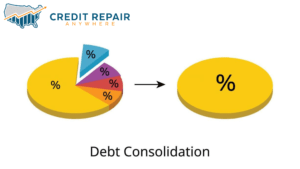Why your credit score matters to loans
Importance of your credit score for loans for your mortgage, Your credit score helps lenders determine your ability or inability to repay the mortgage (and, subsequently, their risk). Lenders also examine your debt-to-income ratio (DTI), the percentage of monthly debt obligations relative to how much income you bring in.
To illustrate, if you earn $4,000 per month, and have $1,250 in credit card, loans, housing and other payments, your DTI ratio would be 31 percent. The ideal ratio is less than 36 percent, though some lenders will accept more with a higher down payment.
Can I get a mortgage with a low credit score?
It is possible to get a mortgage with a low credit score, but you’ll pay higher interest rates and higher monthly payments. Lenders may be more stringent about other aspects of your finances, such as your DTI ratio, if your credit is tarnished.
Keep in mind that credit requirements vary from lender to lender. Shop around with multiple lenders to find one that will work with you.
How to improve your credit score to buy a house
Before you look at houses, it’s smart to check your credit score and pull your credit reports from the three major credit agencies. Addressing credit issues early on can help you raise your score before you apply for a mortgage.
If your credit score isn’t great, there are still options. Instead of settling for the mortgage rates you currently qualify for, consider postponing homeownership and working to boost your credit score and improve your options. Here are some quick tips to help:
1. Check your credit report and correct any errors
Before applying for a mortgage, request a copy of your credit reports from the three major credit agencies: Experian, Equifax andTransUnion. Normally you can access your credit reports from each bureau for free once per year, but due to the COVID-19 pandemic, you’re entitled to a free credit report from each of the agencies once a week through the end of 2022.
If you find inaccurate or missing information, file a dispute with the credit reporting agency and the creditor. Clearly identify each item you’re disputing and be sure to include supporting documents.
2. Pay down credit card balances to below 30 percent of your credit limit
Your credit utilization ratio is the amount of debt you have compared with your available credit. To calculate this, divide the amount of debt into the amount of available credit.
If you have $10,000 in debt and $20,000 in available credit, for instance, your credit utilization ratio is 50 percent. Lenders like to see credit utilization of 30 percent or less.
3. Pay all bills on time
Your payment history accounts for 35 percent of your credit score. While late payments stay on your credit report for seven years, their impact on your score diminishes over time.
4. Don’t close older credit lines after paying them off
Closing unused accounts sounds like a good idea, but it may raise your credit utilization ratio and cause your credit score to drop.
5. Don’t open any new lines of credit score or take out large loans
Generally, the less debt you have, the better off you are when you apply for a mortgage. FICO recommends not opening new credit accounts to increase your credit utilization ratio because each credit request can lower your score slightly. Once your credit has improved, rate shop within a 30-day window. Spreading out the rate inquiries can hurt your score. You can also use our mortgage calculator to estimate your monthly mortgage payments.
Importance of your credit score for loans to buy a home
There’s no universal credit score you’ll need to buy a house, as score requirements differ based on the type of loan you’re applying for. At a bare minimum, you’d want a score around 620, unless you’re going for a FHA. And, as a general rule, the higher your score is, the easier it will be to qualify for a mortgage. That’s why it’s essential to improve your credit score for better mortgage rate offers from lenders.



